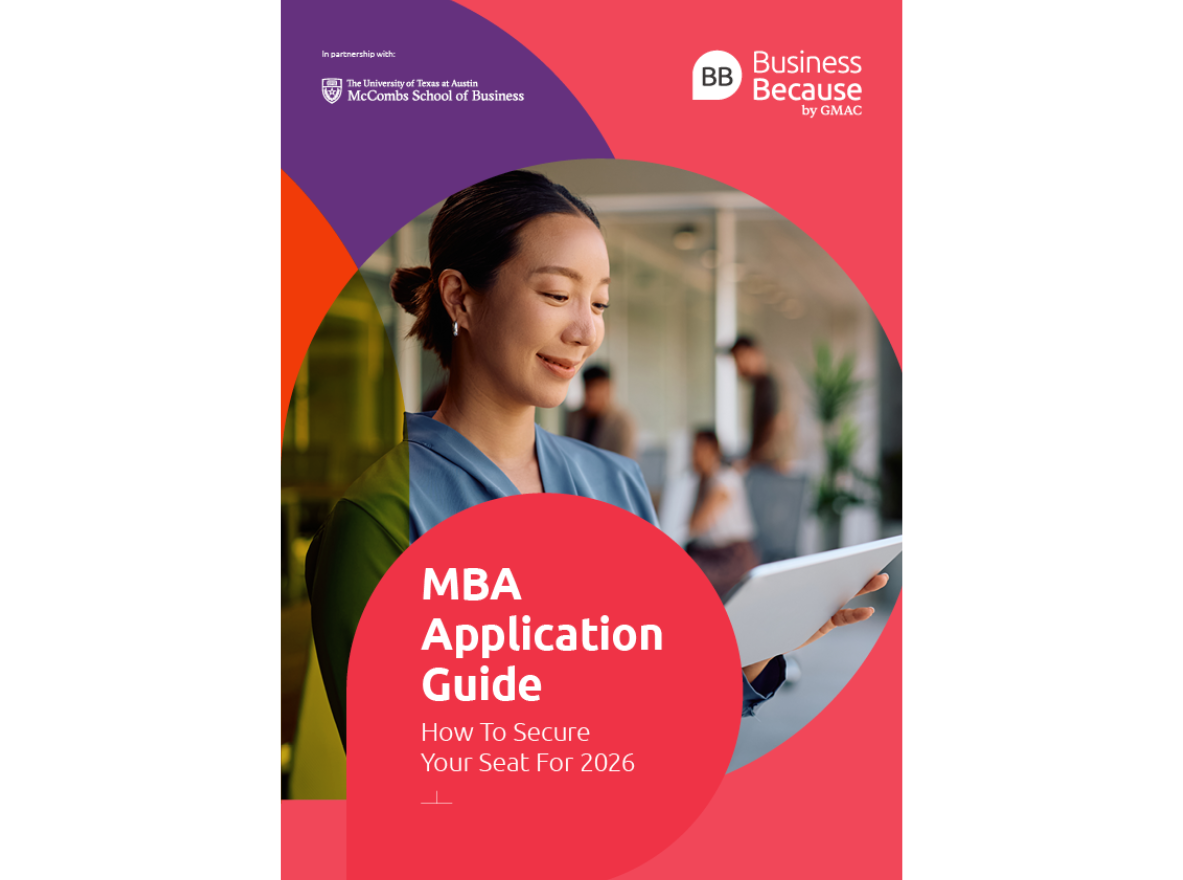Download our free MBA Application Guide: How To Secure Your Seat For 2026, where we break down the key things you need to know in order to make your application shine and wow the admissions committee.
Inside, you'll find insights from admissions consultants, business school experts, and MBA students, providing you with essential MBA application advice to help you prepare.
By downloading this year's guide, published in partnership with the University of Texas at Austin, McCombs School of Business, you’ll gain insider tips on what the MBA application cycle looks like, which MBA application round to apply in, exclusive advice on how to prepare and stand out, and MBA acceptance rates at some of the world's top schools.
Applying for a top MBA?
Download our MBA Application Guide
MBA applications: what you need to know
⇨ 12 months is the standard number of applications at most business schools (some have more)
⇨ 1-2 pages is the average length of an MBA resume
⇨ 30-45 minutes is the typical length of an MBA interview
MBA applications: tips and tricks from experts and students
Here at BusinessBecause we know that MBA applications are no easy feat. They take a lot of time and commitment. From the preparation stage, to the task of securing a top score in the GMAT, and then undertaking an admissions interview, the process can be daunting.
That’s why we have created a step by step guide to walk you through the process. Downloading our guide will give you all the necessary details: from how and when you need to prepare, to what you need to do to showcase your X-Factor in interviews.
Here are some of the tips we have collected from business school experts and students who have gone through the application process:
Tip 1: Ace the GMAT
Getting a high GMAT score is one of the best ways to supercharge your application. Acing this standardized skills-based test can indicate your suitability to an MBA program.
The GMAT exam assesses skills relevant to business and management, such as logic, critical reasoning, and data analysis. Performing well in these categories is a good sign that you will be able to withstand the challenges of an MBA program.
Tip 2: Finalize your resume
Proofreading and finalizing yourresume is an important step in your application process. Your resume should include your functional job skills, breadth and depth of experience,
demonstrated leadership and management skills, and your potential for growth. Remember to include the lessons you’ve learned in the workplace and how they will enable you to contribute within your MBA classroom.
Tip 3: Prepare your transcripts
An important part of the application process—and one that takes time—is retrieving and sending out your academic transcripts. Your transcript conveys your past academic performance and interests. It includes every class you took at your degree-granting university, showing your grade for each class.
MBA application success stories
What would a current MBA student do differently if they could take another attempt at the process? What might they recommend that worked well for them?
While our guide features insights from admissions experts and business school faculty, there is perhaps no one more suited to help with your MBA application than a student who has already been through the process. Here's a top tip from a recently successful applicant:
"Don't try to answer the essay correctly like a GMAT test question. Instead, I'd urge future applicants to reflect on themselves, research McCombs, and then describe why and how they would be a good fit for McCombs and vice versa."
Jalen Wade MBA grad, University of Texas at Austin McCombs School of Business
For more insider tips on how to ace the MBA application process, download our MBA Application Guide | How To Secure Your Seat For 2026




